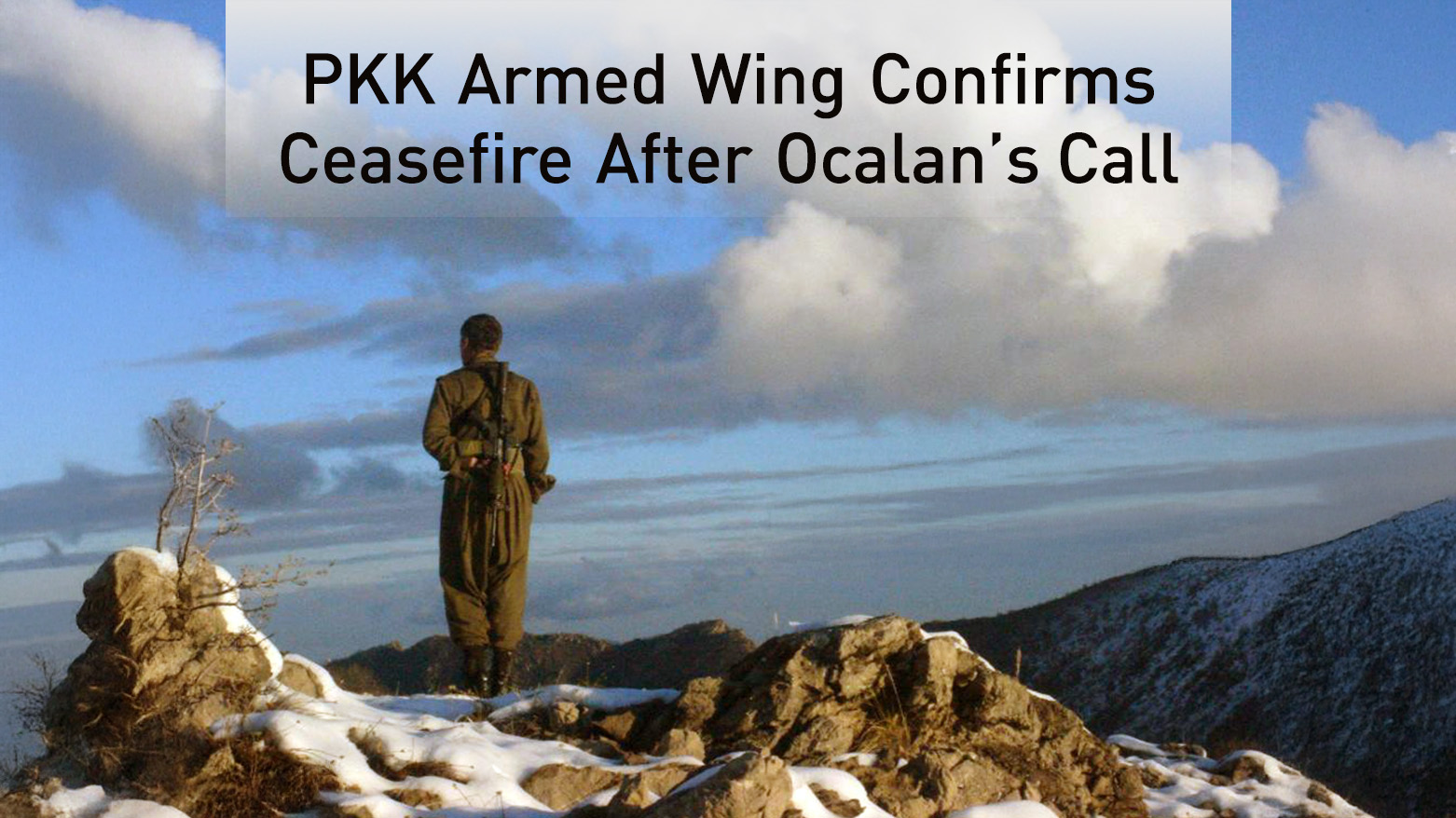PKK Armed Wing Confirms Ceasefire After Ocalan’s Call
In a statement issued by the HPG Command Center, the group confirmed that the ceasefire, declared on March 1, 2025, applies to all of its forces.

ERBIL (Kurdistan24) – The People's Defense Forces (Hêzên Parastina Gel - HPG), the armed wing of the Kurdistan Workers' Party (PKK), designated as a terrorist group by the US, the EU and Turkey, has formally announced its adherence to the recently declared ceasefire, following the call by the PKK’s imprisoned leader, Abdullah Ocalan.
In a statement issued by the HPG Command Center, the group confirmed that the ceasefire, declared on March 1, 2025, applies to all of its forces.
Read More: Abdulla Ocalan calls for the disarmament of PKK
The statement, issued in the name of the Command, instructed all PKK-affiliated armed units and commanders to abide by the directive, emphasizing that this ceasefire is binding across all operational regions, particularly in Turkey.
Read More: PKK Responds to Ocalan’s Call, Announces Ceasefire
However, the group also reserved the right to self-defense, asserting that if they were subjected to attacks, they would respond accordingly within the parameters of legitimate defense.
The latest ceasefire decision follows a historic appeal from Abdullah Ocalan, conveyed through the DEM Party’s Imrali Delegation on Feb. 27, 2025, urging the PKK to lay down arms and dissolve itself. This call prompted the PKK Executive Committee to announce a unilateral ceasefire, signaling a willingness to engage in a non-violent resolution to the long-standing conflict.
While the PKK has publicly stated that it will not engage in any military activities unless provoked, the organization has also tied Ocalan’s release to any potential steps towards a full disarmament process. The group insists that its ultimate dissolution must be overseen by Ocalan himself, reinforcing his pivotal role in shaping the movement’s trajectory.
Turkey’s Stance and the Road Ahead
Despite the ceasefire announcement, Turkish President Recep Tayyip Erdogan issued a stern warning, reiterating that military operations would continue if the PKK fails to uphold its commitments. During a Ramadan fast-breaking dinner in Istanbul, Erdogan emphasized Turkey’s resolve in combatting what he described as an "outlawed terrorist organization," vowing that operations would persist "until the last terrorist is eliminated."
Erdogan’s remarks highlight the skepticism within Ankara regarding the PKK’s sincerity in implementing the ceasefire, given past instances where peace efforts have collapsed. The Turkish government has repeatedly refused to recognize the PKK as a legitimate negotiating entity, instead labeling it a security threat that must be eradicated through sustained military action.
Read More: Erdogan Warns of Renewed Assault on PKK if Promises Not Kept
The ceasefire declaration marks a critical moment in the decades-long conflict, which has claimed tens of thousands of lives since the PKK’s inception in 1978. Previous peace efforts, most notably the 2013-2015 peace process, ultimately unraveled amid renewed hostilities. The present situation remains precarious, with analysts suggesting that any meaningful progress towards a political settlement would require a broader framework of negotiations involving international mediators and regional stakeholders.
As the situation unfolds, the effectiveness of the ceasefire will likely depend on how both sides—Turkey and the PKK—navigate the fragile landscape of trust, political pressure, and historical grievances. While the PKK’s armed wing has formally aligned itself with the truce, the Turkish government’s continued military posture suggests that a definitive end to hostilities remains tentative.
With both parties entrenched in their respective positions, the coming weeks will prove pivotal in determining whether this ceasefire paves the way for a long-term resolution or merely serves as a temporary pause in the conflict.
